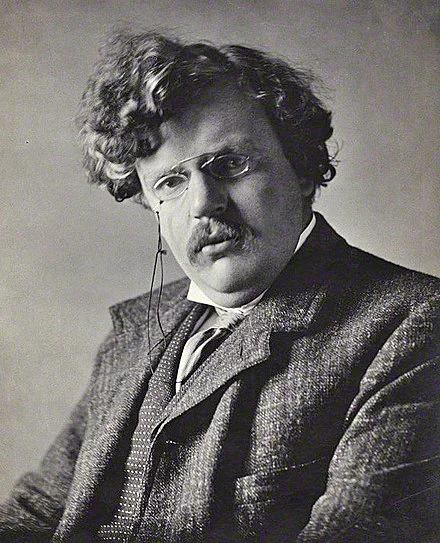'The Donkey' in Holy Week
G.K. Chesterton in 1909.
Gilbert Keith Chesterton, always known just as G.K. Chesterton, was a major figure in British literary, artistic and intellectual life in the last years of the 19th century and until his death, in 1936, at the age of 62.
Chesterton was a humorist, a controversialist and a much- loved foil for wits of the day, including George Bernard Shaw, Oscar Wild and H.G. Wells.
He was as physically big as he was prolific: He stood 6 feet four inches and weighed 286 pounds, and wrote 80 books.
His enduring work includes the Father Brown mysteries (the dramatization of which can be seen on PBS), his book in praise of orthodoxy and his defense of tradition in religious service, which led him from the High Church of England to embrace Catholicism. He became a Catholic as an expression of religious orthodoxy.
He was known to board the wrong train and to wire his wife to find out where he should be. Once she replied, "Home."
He said the only way to be assured of catching a train was to miss the preceding one.
Despite his religious stance, he was a lover of fun; warm and endearing.
What I remember of his work, although I have enjoyed his plea for orthodoxy over the years, is his cherishable poem, "The Donkey," written for Good Friday. Every year, I try to share it with as many as possible and have read it on radio and television.
Here it is:
"When fishes flew and forests walked
And figs grew upon thorn,
Some moment when the moon was blood
Then surely I was born;
With monstrous head and sickening cry
And ears like errant wings,
The devil's walking parody
On all four-footed things.
The tattered outlaw of the earth,
Of ancient crooked will;
Starve, scourge, deride me: I am dumb,
I keep my secret still.
Fools! For I also had my hour;
One far fierce hour and sweet:
There was a shout about my ears,
And palms before my feet.''
Llewellyn King is executive producer and host of White House Chronicle, on PBS.

